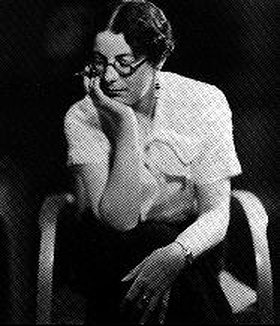Description:
Sylvia Townsend Warner (6 December 1893 – 1 May 1978) was an English novelist and poet.
Sylvia Nora Townsend Warner was born at Harrow on the Hill, Middlesex, the only child of George Townsend Warner and his wife Eleanora (née Hudleston). Her father was a house-master at Harrow School and was, for many years, associated with the prestigious Harrow History Prize which was renamed the Townsend Warner History Prize in his honour, after his death in 1916. As a child, she enjoyed a seemingly idyllic childhood in rural Devonshire, but was strongly affected by her father's death. She moved to London and worked in a munitions fact
Sylvia Townsend Warner (6 December 1893 – 1 May 1978) was an English novelist and poet.
Sylvia Nora Townsend Warner was born at Harrow on the Hill, Middlesex, the only child of George Townsend Warner and his wife Eleanora (née Hudleston). Her father was a house-master at Harrow School and was, for many years, associated with the prestigious Harrow History Prize which was renamed the Townsend Warner History Prize in his honour, after his death in 1916. As a child, she enjoyed a seemingly idyllic childhood in rural Devonshire, but was strongly affected by her father's death. She moved to London and worked in a munitions factory at the outbreak of World War I.
Warner was friendly with a number of the "Bright Young People" of the 1920s.[clarification needed] Her first major success was the novel Lolly Willowes. In 1923, she met T. F. Powys, whose writing influenced her own and whose work she in turn encouraged. It was at Powys' home that Warner, in 1930, first met Valentine Ackland, a young poet; the two women fell in love and settled at Frome Vauchurch, Dorset. Alarmed by the growing threat of fascism, they were active in the Communist Party of Great Britain, and visited Spain on behalf of the Red Cross during the Civil War. They lived together from 1930 until Ackland's death in 1969. Warner's political engagement continued for the rest of her life, even after she became disillusioned with communism.
... (more)
(less)
My tags:
 Add tags
Add tags
 United Kingdom
United Kingdom Login
Login









